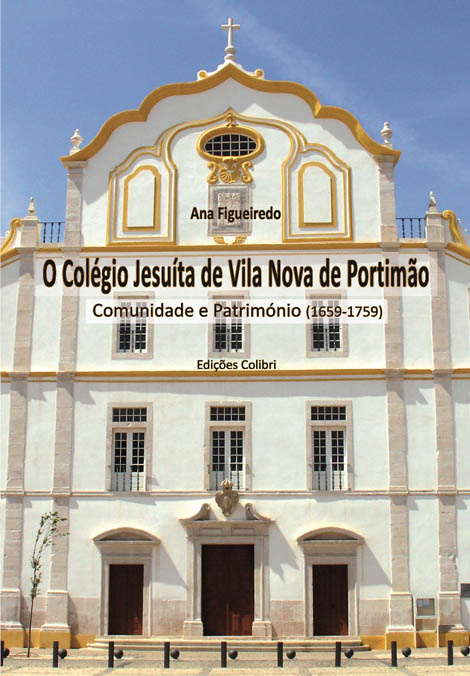 In the month in which the International Book and Copyright Day is celebrated, the Portimão Tourism Office will host on April 20 the presentation of the book “The Jesuit College of Vila Nova de Portimão”, by Ana Figueiredo Santos , in a ceremony that will take place from 17 pm and that includes a cocktail reception and an autograph session.
In the month in which the International Book and Copyright Day is celebrated, the Portimão Tourism Office will host on April 20 the presentation of the book “The Jesuit College of Vila Nova de Portimão”, by Ana Figueiredo Santos , in a ceremony that will take place from 17 pm and that includes a cocktail reception and an autograph session.
The book had already been officially launched in November 2010, in a session that took place at the Colégio Church.
The author, linked to teaching and social solidarity institutions for some time and current president of the Junta de Portimão, has a degree in Portuguese Studies from the Faculty of Exact and Human Sciences of the University of Algarve and a Master's in Regional and Local History from the Faculty of Letters of the Classical University of Lisbon.
The work is the result of his historical research on the genesis, construction and crisis of the Jesuit College of Vila Nova de Portimão, and respects the period of half a century of Jesuit administration.
Through this research work, with the seal of the Colibri Editions and sponsored by the Municipality of Portimão, Ana Figueiredo Santos seeks to publicize the conjunction of economic, cultural and ideological vicissitudes that contributed to the construction of one of the heritage landmarks of greater cultural, artistic and tourist interest of the Algarve region.
The new Tourist Office of Portimão is located in the heart of the city, at nº 10 of Rua 5 de Outubro, and is one of the main information channels of ATP – Associação Turismo de Portimão, an entity whose main responsibility is to promote and tourist entertainment, from the destination “Portimão”, operating in springtime from Monday to Saturday between 9:30 am and 19:00 pm, closing on Sunday.
A school and a church with a lot of stories to tell
Ana Figueiredo's book is the result of her master's thesis in Regional and Local History, defended in 2002 at the Universidade Clássica de Lisboa.
In the presentation in November 2010, the author recalled that the Jesuit College of Portimão was built in 1660, «at a time when the Algarve was an even more peripheral region in relation to the center of power, in Lisbon».
The creation of a college was, in fact, fiercely disputed between Portimão and Lagos, while in Faro the Colegio de Santiago Maior was founded in 1616 (today Teatro Lethes).
And why this dispute? Because it was understood that the creation of a school that could teach reading, writing and counting, in addition to religious education, would be an asset to the then Villa Nova de Portimão.
"The local elites understood that it would be important, even for the affirmation of the land and their own, to bring the Jesuit College here," he stressed.
And who ended up paying for the construction of the building and guaranteeing everything that would be necessary to support the scholastics and the other members of the Society of Jesus in Portimão was one of the most prominent members of the local elite, Diogo Gonçalves, whose mortal remains still rest today at the College Church.
Starting the process in 1659, the College only began to function provisionally in 1704, while the Church, the one in which more than 200 people gathered on the 22nd, opened for worship in 1707.
However, the life of this smaller college (primary and secondary education up to university preparation) had to be relatively short, as it only operated for 50 years.
In 1759, the Marquis of Pombal, during the reign of King José I, expelled the Jesuits from Portugal, and with them a certain more open and more illuminated church left the country.
The College then went through many vicissitudes: among the many functions it housed over the centuries, it was a hospital, today it is a home for the elderly and the seat of the Parish Council. His church was, until half a dozen years ago, the city's mortuary chapel.
Today, after a restoration campaign paid for in large part by the Portimão Town Hall, it is open to visitors, while it receives masses from the parish, during the works of the neighboring Igreja Matriz.


















Comments